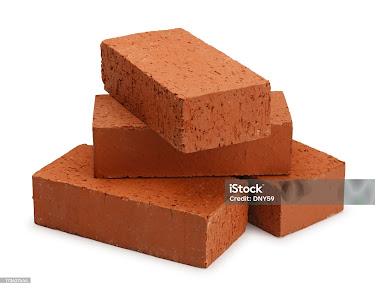1000 Bricks Price in India
1000 Bricks Price in India are a vital constructing cloth used substantially in development tasks throughout India. The charge of bricks can fluctuate considerably primarily based on a number of factors, making it necessary for builders and contractors to apprehend the dynamics influencing these costs.
Factors Affecting Brick Prices
The value of bricks is influenced by using quite a number factors:
Availability of Raw Materials
The availability and fee of uncooked substances like clay, fly ash, and cement play a quintessential position in deciding brick prices. Fluctuations in the expenditures of these substances can immediately have an effect on the normal fee of bricks.
Manufacturing Process
Different sorts of bricks require various manufacturing processes. Traditional clay bricks, for example, endure a firing method which can be dearer in contrast to current choices like fly ash bricks produced via a hydraulic press.
Demand and Supply Dynamics
Market demand and grant imbalances can lead to fee fluctuations. During height development seasons, Hyderabad Builders brick expenses may also upward push due to extended demand, whilst oversupply for the duration of off-peak intervals can reason fees to drop.
Types of Bricks and Their Prices
Bricks come in one of a kind types, every with its very own fee range:
Clay Bricks
Clay bricks are broadly used and quite affordable, with expenditures ranging from ₹4 to ₹10 per piece relying on best and location.
Fly Ash Bricks
Fly ash bricks, made from industrial waste, are eco-friendly and cost-effective, priced between ₹3 to ₹8 per piece.
Concrete Bricks
Concrete bricks are long lasting and versatile, priced between ₹6 to ₹12 per piece based totally on power and size.
Regional Variations in Brick Prices
Brick fees can differ appreciably throughout areas in India:
North India
In North India, brick expenses are normally greater due to greater demand and transportation costs, ranging from ₹5 to ₹15 per piece.
South India
South India typically enjoys decrease brick prices, ranging from ₹4 to ₹12 per piece, owing to the availability of uncooked materials.
East India
East India experiences reasonable brick prices, ranging from ₹4 to ₹11 per piece, influenced through neighborhood manufacturing practices.
West India
West India witnesses numerous pricing, with brick fees ranging from ₹5 to ₹13 per piece relying on the nation and demand.
Cost Breakdown of Brick Production
Understanding the fee breakdown of brick manufacturing is essential:
Material Costs
Materials like clay, cement, and fly ash represent a vast element of the ordinary manufacturing cost.
Labor Costs
Skilled labor for manufacturing and transportation contributes to brick pricing.
Transportation Costs
Transportation costs can range primarily based on distance and logistics, affecting last retail prices.
Market Trends and Price Fluctuations
Brick expenditures are situation to market traits and financial factors:
Seasonal Changes
Prices might also fluctuate seasonally due to climate stipulations impacting development activity.
Economic Factors
Inflation, forex fluctuations, and coverage modifications can have an impact on the fee of manufacturing and distribution.
Government Regulations and Impact on Prices
Government insurance policies on mining, environment, and taxation can at once have an impact on brick manufacturing prices and prices.
Environmental Considerations
The environmental influence of brick manufacturing is a developing concern:
Sustainable Brick Alternatives
Developing and merchandising sustainable choices like fly ash and concrete bricks can mitigate environmental impact.
Impact of Brick Production on Environment
Traditional brick kilns make a contribution to air air pollution and deforestation, necessitating eco-friendly practices.
Tips for Buying Bricks
When buying bricks, think about the following tips:
Quality Parameters
Ensure bricks meet nice requirements for strength, porosity, and durability.
Negotiating Prices
Bulk purchases and negotiations with suppliers can yield price savings.
Future Outlook for Brick Prices
The future of brick expenditures will be formed by means of technology, sustainability, and market dynamics. Innovations in manufacturing and growing demand for eco-friendly substances will impact pricing trends.
Conclusion
In conclusion, the fee of bricks in India varies primarily based on uncooked cloth costs, manufacturing processes, regional dynamics, and market trends. Understanding these elements is essential for builders and builders to make knowledgeable decisions.
Unique FAQs
- Are fly ash bricks greater pricey than standard clay bricks?
Fly ash bricks are usually priced decrease than standard clay bricks due to the use of industrial waste materials. - How can I limit brick procurement costs?
Negotiating with suppliers, opting for bulk purchases, and exploring choice brick kinds can assist decrease costs. - What are the environmental advantages of the use of fly ash bricks?
Fly ash bricks assist minimize carbon emissions by using utilising industrial waste and decreasing the demand for clay extraction. - Why do brick expenses fluctuate throughout specific states in India?
Regional elements such as availability of uncooked materials, transportation costs, and market demand have an effect on brick pricing. - How can authorities rules influence brick prices?
Changes in mining policies, environmental regulations, and taxation can at once have an impact on the manufacturing and pricing of bricks.


Comments
Post a Comment